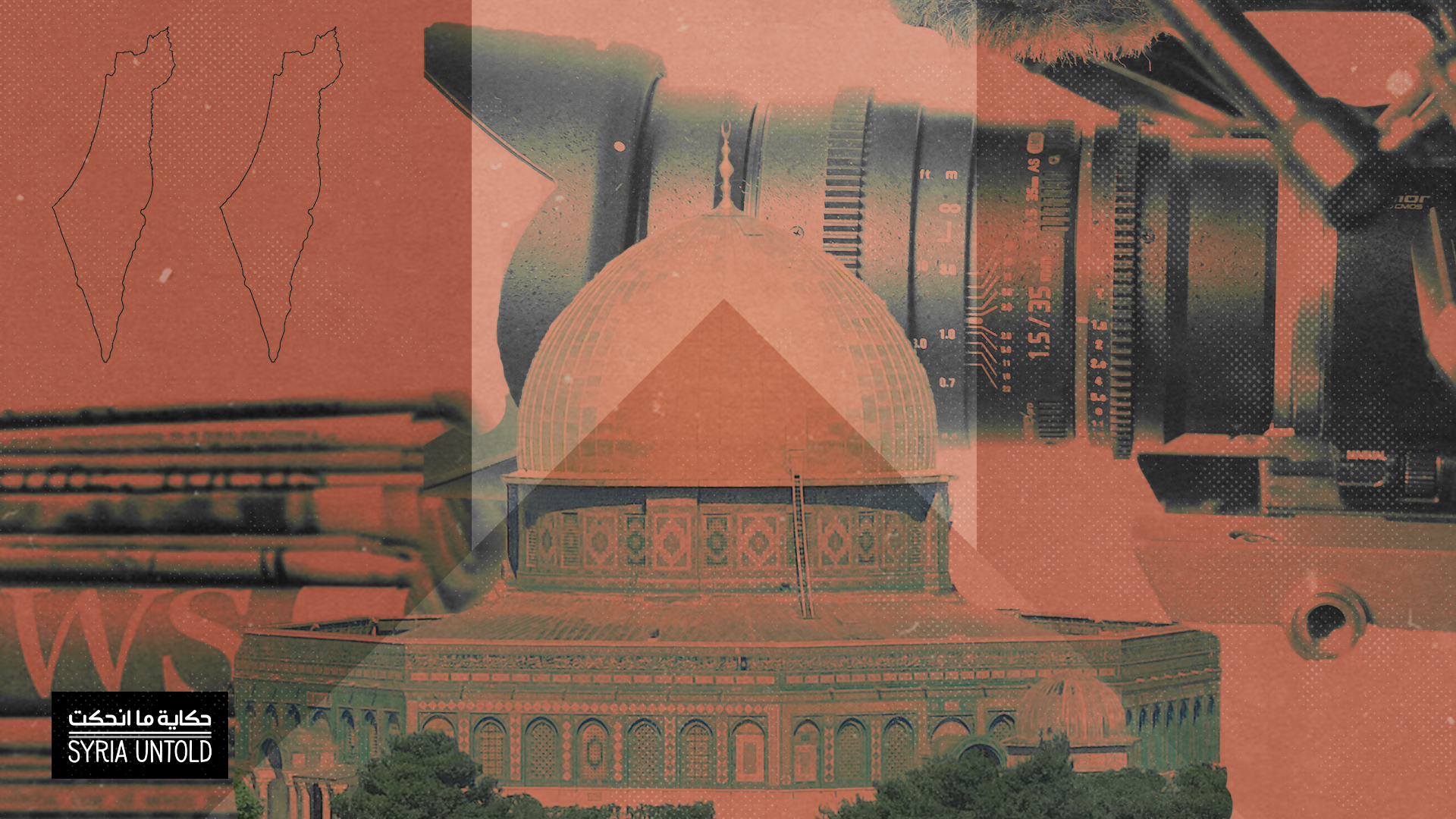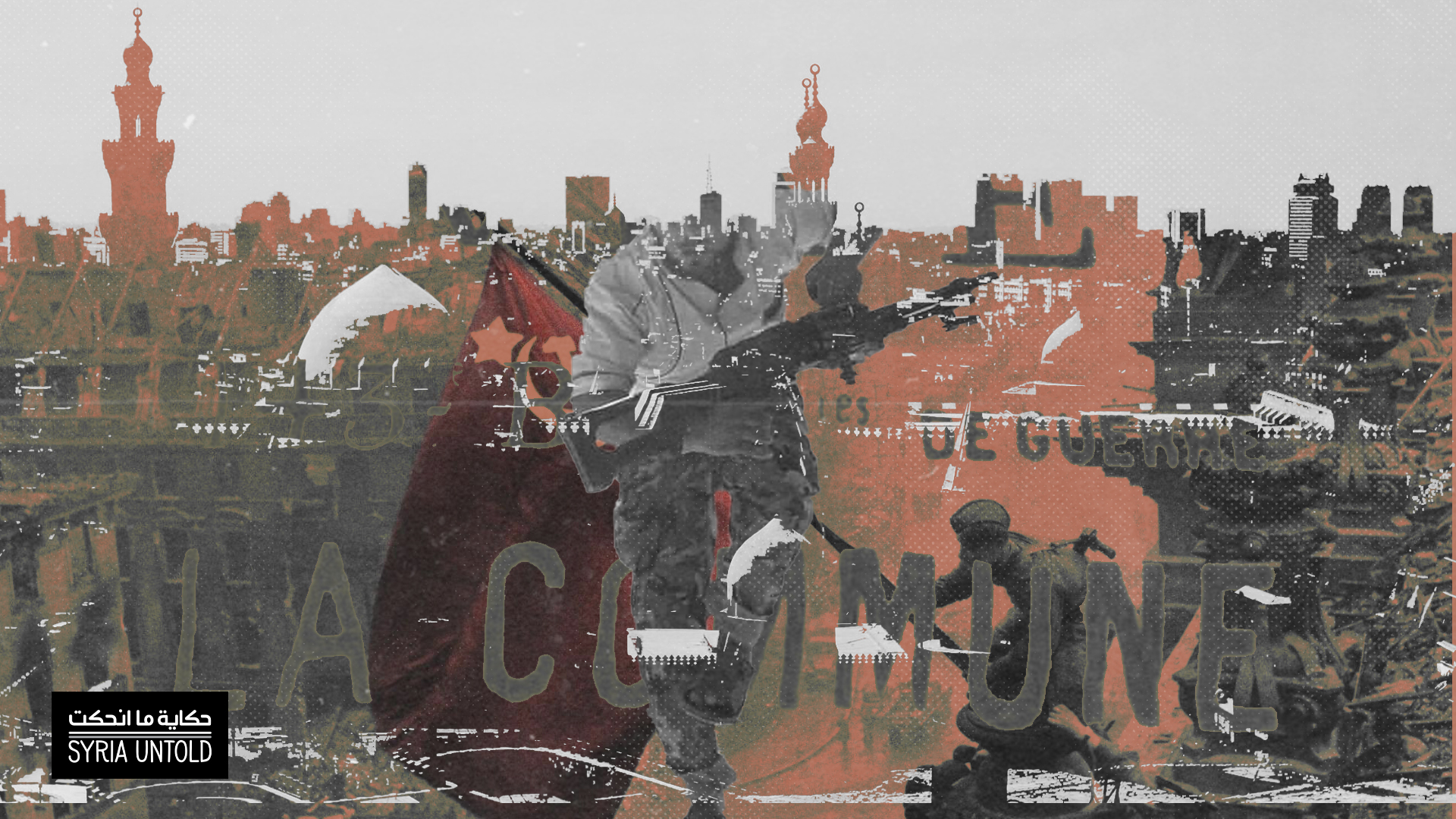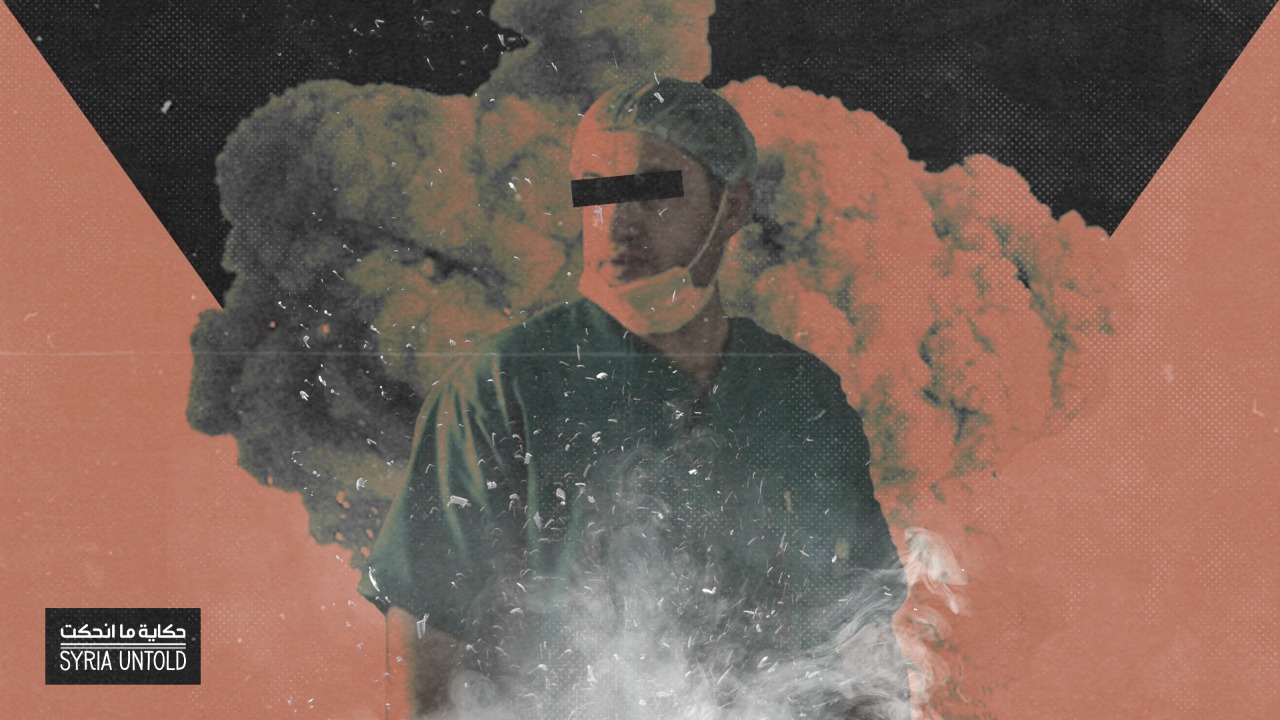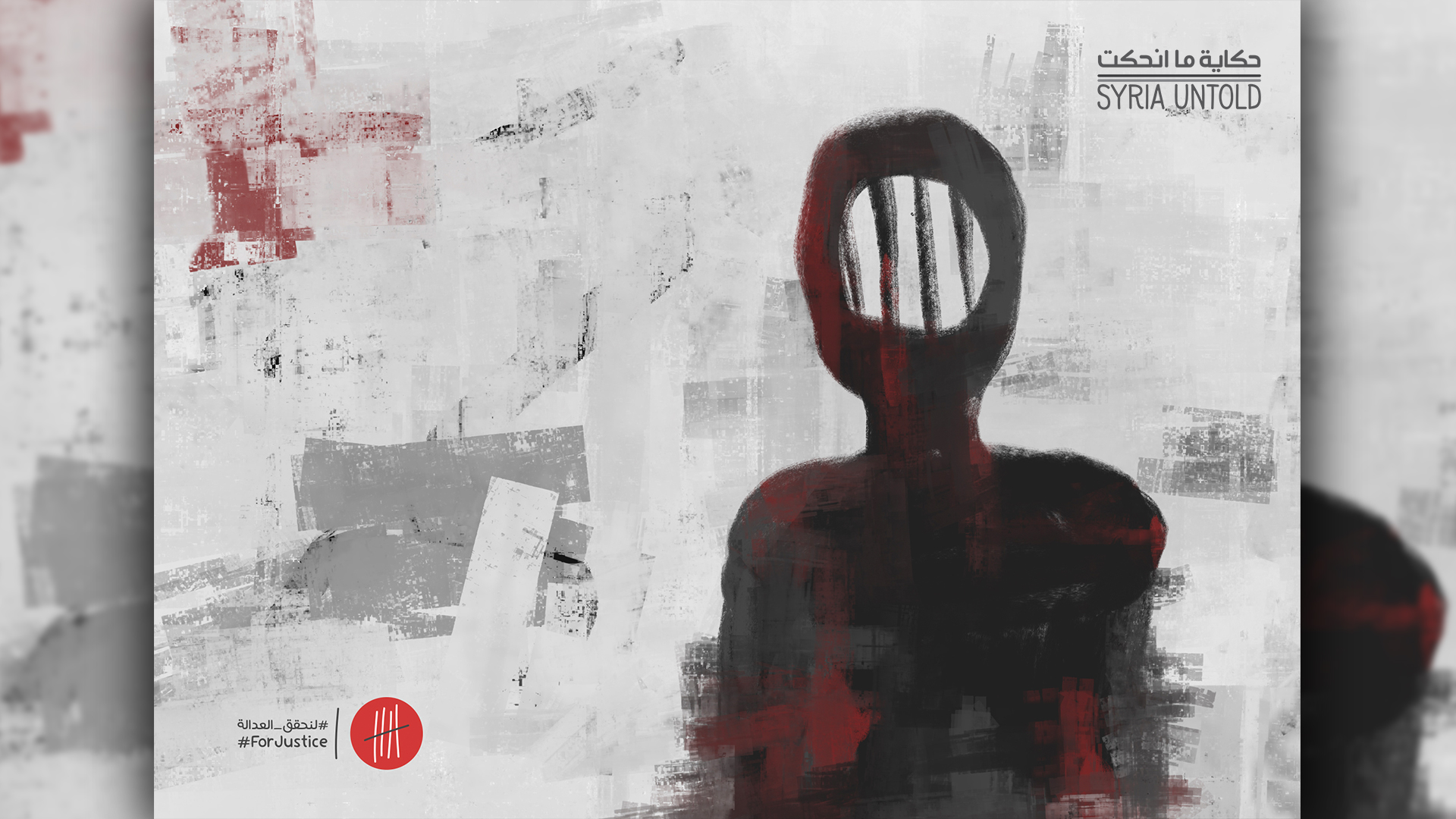Syria: People smugglers take to TikTok (Daraj)
“Fearing conscription by the Assad regime? Want to start a new life in Europe?
Surf online a bit, and you’ll find that a quick chat with the right people might just solve your problem.
Human traffickers in Syria have taken increasingly to the social media app TikTok in recent months to advertise their services, which include ‘traveling without borders’ in luxury vehicles that breeze through the military checkpoints dotting the mountain highway from Damascus to Beirut.” Read More
Media and Palestine: Times are (maybe) changing
02 July 2021
Land, revolutions and lessons from Syria
04 May 2021
Shooting the war in Syria (Newlines Magazine)
“Since 2011, the war in Syria has often been described as ‘the most documented conflict’ in history, as ex-judge Catherine Marchi-Uhel said when she was appointed to head the United Nations International, Impartial and Independent Mechanism on Syria Crimes. Photographs and videos coming from the Syrian war zone might one day be used as evidence for prosecuting war crimes, but their purpose cannot be restricted to the judiciary. In the 10 years since the conflict began, such a vast number of images has been produced that one wonders: Why did this specific conflict yield millions of images, and what happens to them once they have been disseminated in the media?” Read more
Syrians return to camps seeking aid as economic crash bites (The New Humanitarian)
“With food prices up and the currency worth less each day, more and more people in northeast Syria, which The New Humanitarian visited in May, are finding themselves in similar circumstances to Hamadi: They are unable to afford life at home so seek out shelter in camps, where families at least receive food aid and a place to sleep.” Read more
Idlib braces as a crossing to Syria prepares to close (Deutsche Welle)
“The Syrian city of Idlib is separated from the Bab al-Hawa crossing at the Turkish border by about 40 kilometers (25 miles). Huda Khayti, director of the Women Support and Empowerment Center Idlib, travels there several times each week to check on people in refugee camps along the border and bring them aid. Millions of internally displaced Syrians have been living there under extremely difficult humanitarian circumstances for years, and Khayti is worried about their fate.
‘These people are extremely dependent on aid,’ she told DW by phone. ‘They don't have a voice. The world doesn't see them. If the assistance stops, they will quietly begin dying — either from starvation or illness.’
The threat that aid could be cut off is real. The UN mandate that is the foundation for all aid delivery in the region of Idlib is about to expire.” Read more
U.S. conducts airstrikes in Syria and Iraq against Iranian-backed militias (The Wall Street Journal)
“The U.S. conducted airstrikes in Syria and Iraq against two Iranian-backed militias that the Pentagon said were mounting drone attacks against U.S. troops.
The Pentagon said operational and weapons-storage facilities had been struck near the Syria-Iraq border at three locations that it said had been used by the Kata’ib Hezbollah and Kata’ib Sayyid al-Shuhada militia groups.” Read more
From Syria to Lebanon, saving the seeds that could save humanity (Newlines Magazine)
“The seeds that could save humanity were in a vault in Syria. Then the war came, and the seeds were relocated to Lebanon for safekeeping. The move was actually a return to Lebanon, where ICARDA was first headquartered, before Lebanon’s civil war forced their move to Syria in 1984.
The International Center for Agricultural Research in the Dry Areas (ICARDA) emerged from and expanded the former Arid Land Agricultural Development (ALAD) Program of the Ford Foundation that operated in Lebanon in the 1960s and 1970s. ICARDA’s objectives are numerous, but they all boil down to improving the livelihoods of the resource-poor across the world’s dry areas, from utilizing limited water resources to improving the production of staple food crops.” Read more







